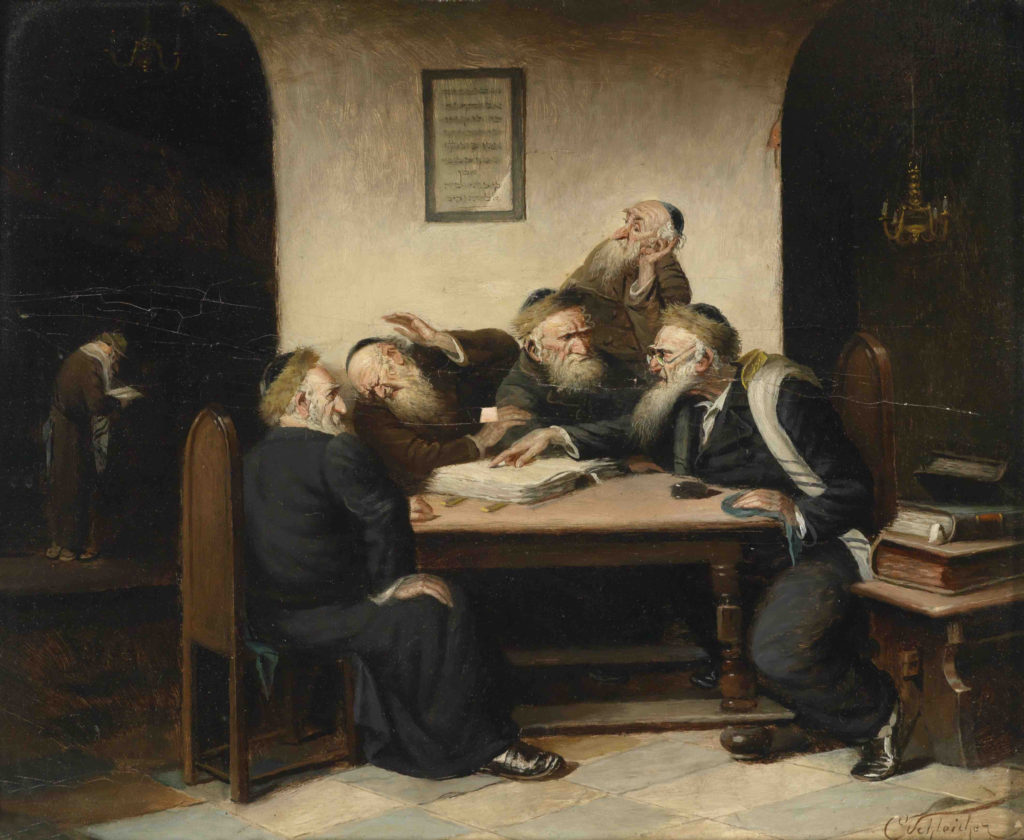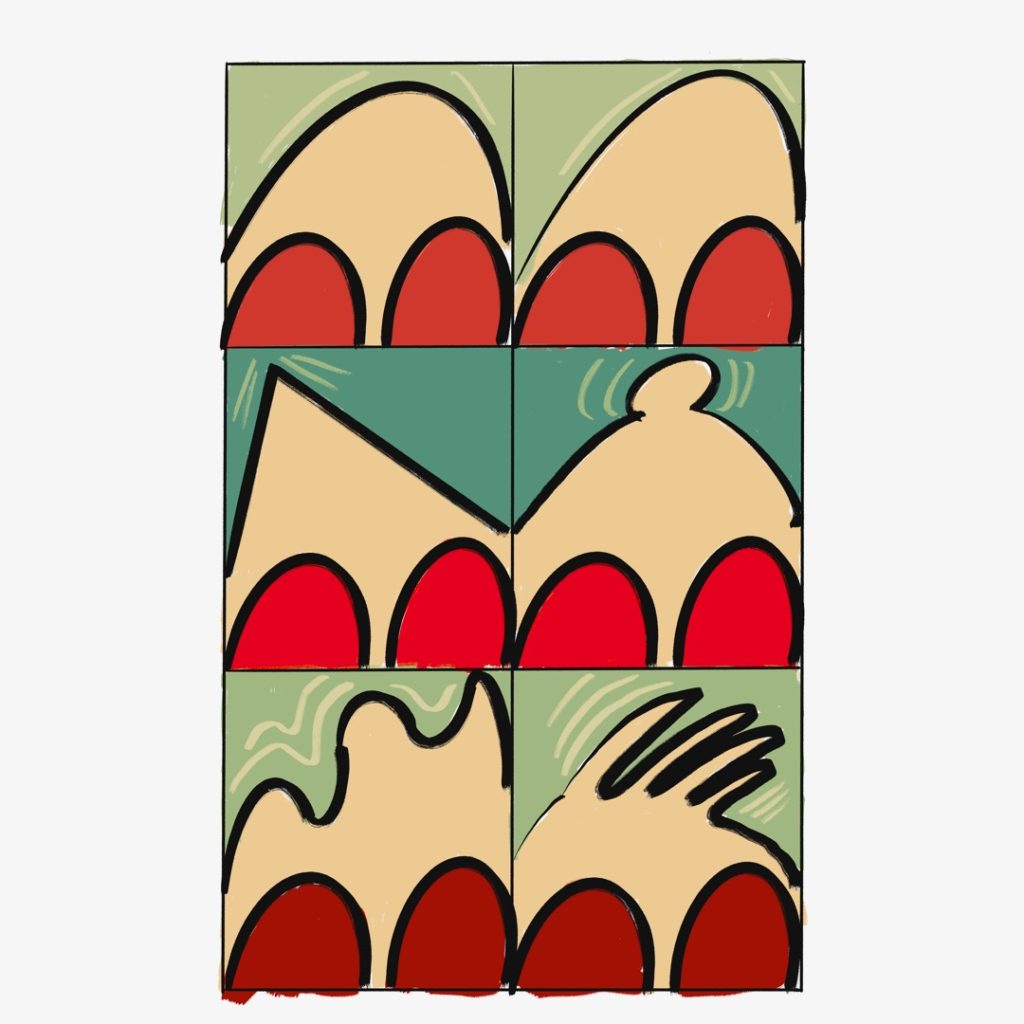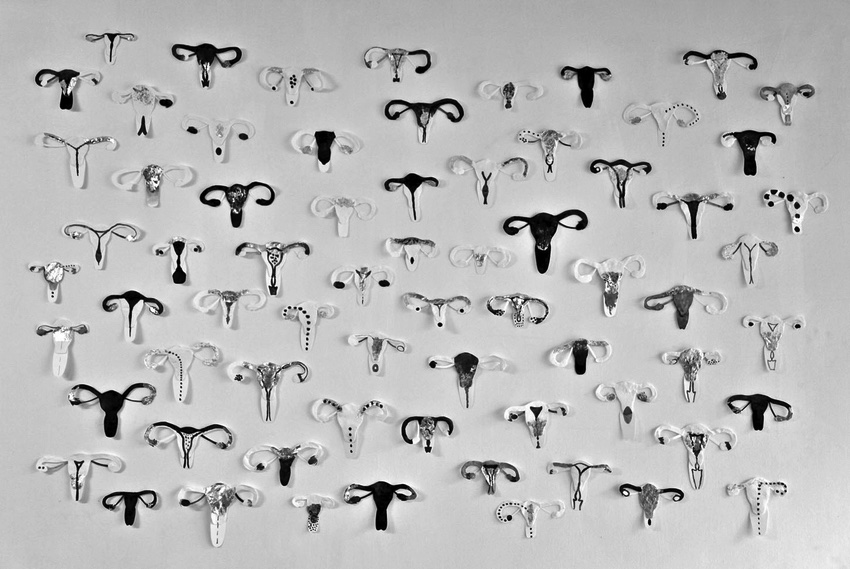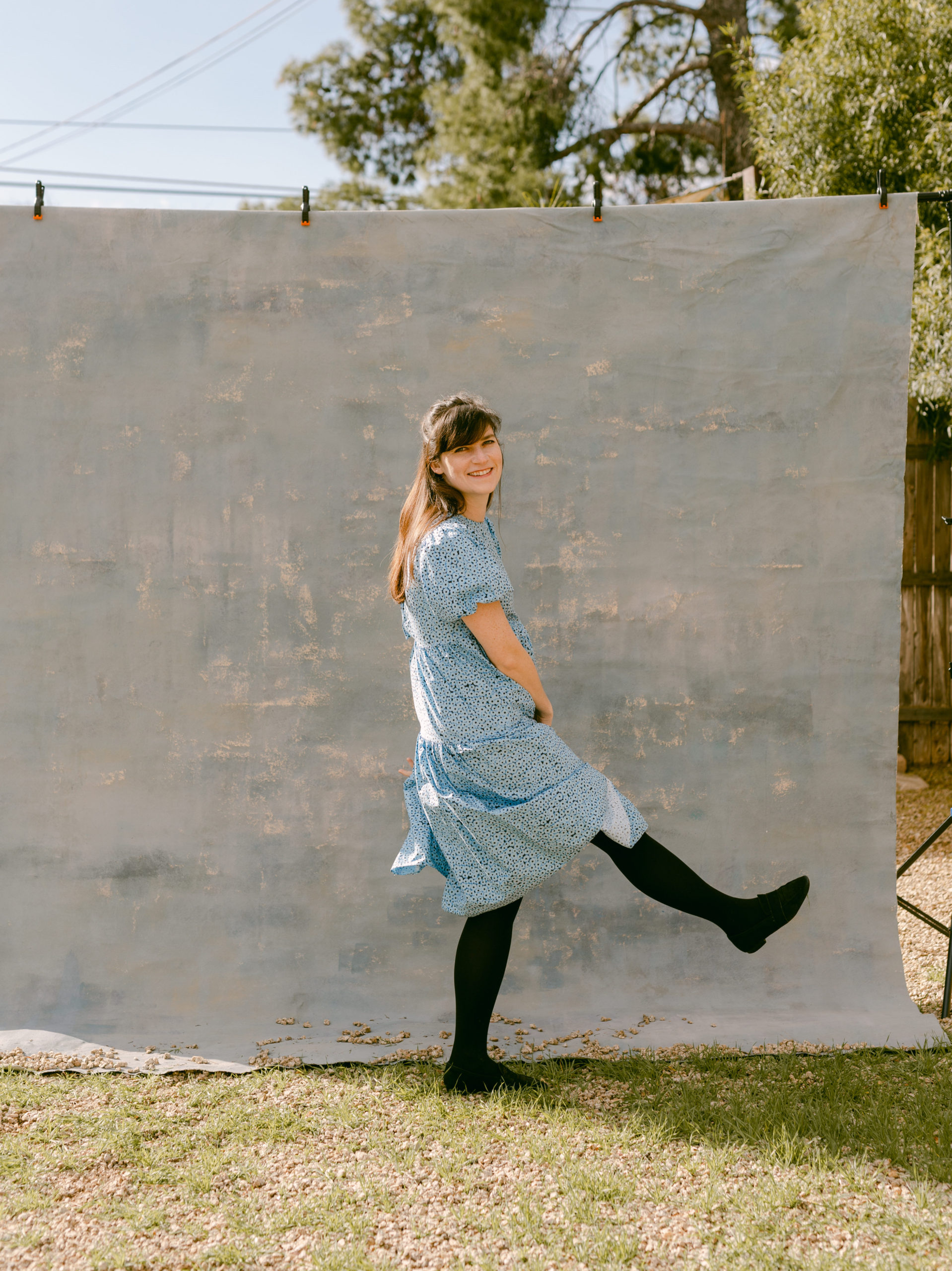
The idea, apparently, is to describe the process of creating a play—in particular, my play, The Matriarchs, formerly known as Miriam—for the Civilians through research (largely biblical, in my case) and interviews (surrounding questions of motherhood and identity for my project). My pitch was to plumb Torah tales of women through the lens of fertility and sterility and find my own lens.
I’ve been told it’s very important to follow instructions. When my writing students are stumped, I tell them to re-read the prompt, to use the question to guide them. Whether or not this is true or helpful is entirely irrelevant. Plenty of times it’s essential to disobey and rewrite. Plenty of times it’s essential to cling to what you thought you knew. I’m just letting you know what the task at hand is and why I’m serving you this primordial processing soup. It was ordered.
Two nights ago, I interviewed a young Modern Orthodox girl, well-versed in Torah and even better-versed in Taylor Swift. My questions and her answers are in bold. My thoughts are not.
“What do you think about being a mother?”
“Um, well, first of all, being pregnant does not sound fun. At all. And also when, like, when the children are little, it also doesn’t sound fun. But I don’t know, I feel like I would want to have… children. To have, like, someone, you… to be able to be a role model for somebody, I don’t know.”

For a long time, I just used condoms, or, more accurately, I insisted that my partner use condoms. For an even longer time, I didn’t know what sex was. I imagined that love-making began with articulate impassioned letters and culminated in the kind of kiss you find on the cover of a romance novel. Even that was hard to imagine for a nerd who nursed long serious crushes on boys who turned out to be gay or decided to date the hot Mormon girl instead. Not the same boy, to clarify—this isn’t Angels in America.
At Yale, surrounded by other nerds, I realized that I was suddenly relatively attractive, and that’s when the real troubles started: I made out with a guy under a set of twinkly lights on Halloween and then marched myself over to the Health Clinic to ask for the morning after pill. I was sure that I might have been impregnated while fully clothed and probably chewing and slobbering on this poor guy’s face. The nurse sent me away. Who knows what she told her friends.
How would I weather a pregnancy were fertilization to actually occur? How does any woman? I remember my mother smiling stupidly on a couch, her mustard-rimmed glasses slipping off her nose, as my youngest sister nursed at her pale breast. And I remember learning at my orthodox day school that upon delivery of a child, a woman becomes unclean for seven days and that she must bring an offering of a pigeon or turtle-dove to the temple and atone. It doesn’t end there. My (female) teacher assured us there was no sin in childbirth; the sin was actually in the woman’s mouth. As I remember it, she said a woman can’t give birth without cursing God.
I researched this—unsurprisingly, my memory betrayed me. I found the source: the (male) Rabbi Shimon Ben Yochai explains in the Babylonian Talmud that when a woman is in labor, she swears to never have sex with her husband again, to never again fall pregnant, and the sacrificial offering is atonement for her vow… which she couldn’t possibly keep, right? How many oblivious birds would I have had to sacrifice for cursing God then? Presumably that’s also a malediction I can’t enforce forever. On some day in the future, my true love might give to me [his sperm, and then I had to sacrifice] three French hens, two turtle-doves and a partridge in a pear tree.

“Boys or girls?”
“Definitely girls. I don’t know, it’s—I mean there are crazy girls, like stereotypes or something. In general, all the crazy little kids I know are mostly boys. And also—I feel like, this could just be from what I see, I don’t know if this is true, generally, but I have a lot of friends with older sisters and they have really good relationships with them. And it’s a little different if it’s, like, boys… I don’t know.”
Maybe I would have known more about the male (or female) reproductive system if I’d grown up with brothers. And maybe I wouldn’t unconsciously call our sexual organ our “reproductive system.” There’s a mitzvah, the Hebrew word for “commandment” that is usually translated as “good deed,” to be fruitful and multiply. In fact, many sources say it’s the very first one of a long list of six hundred and thirteen mitzvot because of its chronological placement in Genesis. At the very top:
“And God created man in His image, in the image of God He created him; male and female, He created them. God blessed them and God said to them, ‘Be fertile and increase, fill the earth and master it; and rule the fish of the sea, the birds of the sky, and all the living things that creep on earth.’”
There it is: the commandment to increase, to fill the earth. Here I am, word after word, breath after breath, understanding how. The rabbis decided, by the way, that this mitzvah is only truly fulfilled if you have a boy and a girl—10 boys don’t count as one girl, and vice versa. But also, if I were pregnant with exactly a boy and a girl somehow, would I more quickly master the world? Would the fish of the sea and the birds of the sky bow to my progeny? Feathery, scaly tributes? Is that why we spend all that time teaching children what sounds animals make? Don’t forget to whom you are superior. Assume they can’t think or speak like you. Baa. Moo. Woof.

“Do you ever think it would be easier to be a boy?”
“I’m kinda content being a girl. Certain things are a little unfair and biased towards boys but, like, their life just doesn’t seem as interesting. Literally all the boys in my class do is like play sports, and I don’t know!” Giggle.
Surprise: the women of the Torah are secondary! They are wives! They are mothers! They are rarely personified! Like opera characters, they frequently swoon and die, representative of some conflict, and every once in a while, they instigate something in the margins. Practical Sara, Avraham’s wife, laughs God off when she hears she will bear a child at her old age, and the sly Rivkah privileges her youngest born Yaacov over his stronger older brother, tricking her own husband. It goes on and on… women in the shadows, pulling strings. Miriam convinces her parents to reunite and have a child even though Pharaoh has decreed all Jewish boys be killed. She accuses her father, Amram, of being crueler than Pharaoh, for his decision not to bring life in the world kills every girl.

“What does mean to you to be Jewish?”
“That is a very hard question to answer. I think, to be Jewish means that you have set values that you follow. It’s kind of like a code of how to live your life.”
“Do you believe in God?”
“I think I do, yes.
“And if you were to describe God personally, what would that be for you?”
“I think that God is Hope. I think that, like, if logically there’s no way that something could happen… but then God is what keeps you from being depressed all the time.”
It’s so easy to fall through the cracks, to point to the empty spaces and sneer, “We are underrepresented. We have no place. We are systematically erased if we were ever included at all.” My brain sweats and my heart bursts when I squeeze myself into the tiny spaces afforded to these matriarchs and listen to a young woman point to hope. No pie or guy in the sky. Substitute God for Hope. And then perhaps fulfill the commandment to increase.

“When have you felt close to the idea of God?”
“It’s a hard question. I think honestly whenever I’m having trouble with my friends…. There are other things that are hard in my life that don’t have to do with friends, but for some reason there’s a connection there for me.”
“When do you feel furthest from God?”
“I probably feel farthest from God when I am bored. Or doing something very tedious. It kinda feels like… It’s not like I’m going through something good that makes me happy and grateful and not something so terrible that I’m looking to God for help. It’s kind of just like I’m not really thinking about Him, I’m purposefully avoiding the thought of meaning.”
“I just heard you use the pronoun ‘Him.’ Do you think God is a Him?”
“I’ve been trying to avoid that actually. That’s why I keep saying God. But sometimes ‘cause everyone says that still, I… but no, I do not think God is a Him.”
I had been struggling with a line in my play when my six matriarchs, reimagined as squabbling brilliant teenage girls at a Talmud lesson on Shabbas, refer to God with a male pronoun. Leah is repulsed…
LEAH
Him???
SARA
It can be a Him.
RIVKAH
I doubt it.
RACHEL
Fine, whatever. TO HASHEM.
And here it was, a real life girl (with no lack of religious knowledge) consciously shedding that designation of maleness. Now I don’t have to change the line.
“If you had a daughter what would you want to teach her?”
“I’d want her to know that everyone deserves respect even if—Or. No I’ll rephrase that. You should give everyone respect even if they don’t deserve it.
And the other thing would be that…
She should notice things,
She should notice the world around her.”
She said it, not me.

Liba Vaynberg is a playwright and actor. She lives in a constant state of anxiety with her husband Zev and dog Vera. @libavaynberg
Extended Play is a project of The Civilians. To learn more about The Civilians and to access exclusive discounts to shows, visit us and join our email list at TheCivilians.org.
Author
-

Liba Vaynberg is a playwright and actor. She lives in a constant state of anxiety with her husband Zev and dog Vera. @libavaynberg
View all posts








